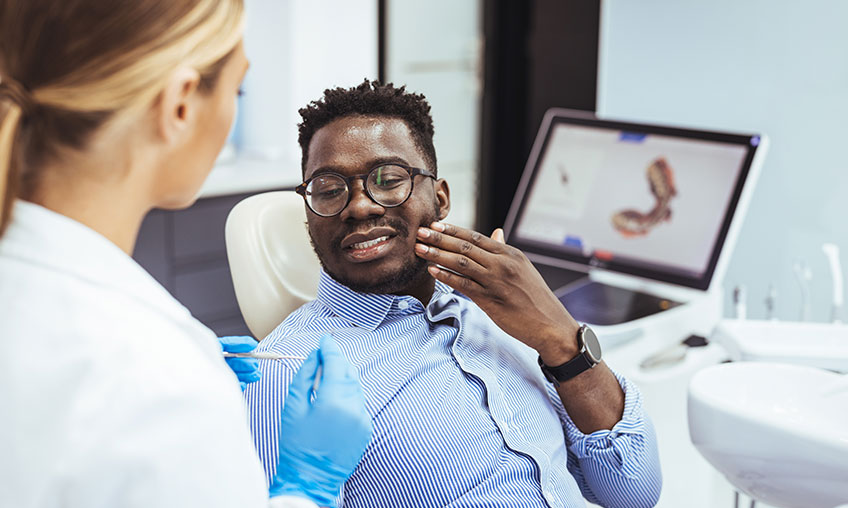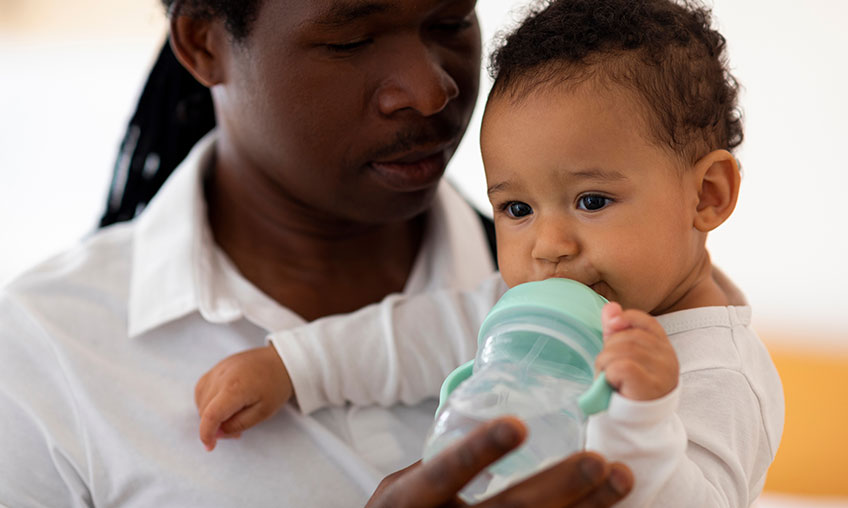Veterans Day is an important reminder of what it means to give service to this country, but it also underscores that we can do more to support veterans’ health and wellbeing. As a former Marine and someone who works in the health care space at DentaQuest, I know first-hand that this support is necessary — and not just on November 11.
Around this time of year in particular, I think everyone would agree that veterans deserve the best when it comes to health benefits and care. Yet, it also would likely not be shocking to most veterans that VA benefits can be inadequate and hard to access. That goes double for oral health care.
Anyone who has had direct experience dealing with the U.S. Department of Veterans Affairs (VA) can probably attest to the difficulty accessing needed care. The agency can be extremely tough to navigate, opaque, and inefficient. What’s more, only 15% of veterans are actually eligible for dental care through the Veterans Health Administration, and only a third of that 15% actually use the benefit. This leaves a huge portion of veterans without access to critical oral health care.
We know that a person’s oral health has a direct impact on their overall health. And health outcomes are measurably worse among certain populations, including people of color, low-income or uninsured people, and veterans. The data backs this up.
A recent report from CareQuest Institute for Oral Health and the American Institute for Dental Public Health showed survey results indicating that veterans disproportionately bear burdens of disease and disability related to their overall health, which exacerbate their poor oral health outcomes. In that survey, 14% of veterans reported losing six or more teeth due to decay or gum disease, compared to 8% of non-veterans. Another study on oral health inequities showed that half (49%) of veterans reported that a disability in their household made it difficult to access needed dental care compared to just 20% of non-veterans.
The challenge with accessing care through the VA is partly due to the system being completely overloaded. The system is so backlogged that getting a dental referral can sometimes take over a year, and someone living in a more rural area may have to drive several hours to reach the nearest provider. The VA benefits only apply to VA facilities, which limits where and when you can be seen. For veterans who qualify, Medicare can expand your ability to get care elsewhere and more quickly but does not cover dental (except in extremely limited circumstances).
The result of this significant gap in dental coverage goes beyond impacting veterans’ medical health, hurting their economic and financial health as well. According to that CareQuest survey, 55% of veterans said they had difficulty interviewing for a job because of the appearance of their teeth. Twice as many veterans compared to non-veterans had to take time off work because of the state of their mouth and oral pain.
There are ways to help close that gap that don’t require a total overhaul of the VA. Medicare Advantage is one of them.
A majority of seniors are choosing Medicare Advantage plans largely because — unlike traditional Medicare — these plans have added benefits like dental and vision care and lower out-of-pocket costs. Thanks to star ratings and other measures, Medicare Advantage plans also ensure quality dental care and most cover preventive costs at 100%. Plus, you can see a dentist nearby for a cleaning far more quickly than waiting for a referral to make it through the VA.
Medicare Advantage enrollment has grown enormously in recent years. According to the Commonwealth Fund, 45% of Medicare beneficiaries are enrolled in Medicare Advantage plans for 2022, and that is expected to increase to more than 50% by 2025.
In my work at DentaQuest, a national oral health insurance organization, we partner with dozens of Medicare Advantage plans to administer dental benefits offered to their members, and we don’t do it passively. Because we know that poor oral health impacts overall health, we and the Medicare Advantage plans we partner with actually encourage members to use dental benefits. Routine dental care promotes good oral health and saves money.
Some states are recognizing that, too, and expanding Medicaid benefits to include more comprehensive dental coverage. But that kind of change takes time and won’t happen overnight (you can probably get a VA dental appointment faster). In the meantime, we can do more to increase awareness of the benefits of Medicare Advantage among veterans and their families as an affordable way to access better dental care. If you are a veteran and qualify for Medicare, you have until Dec. 7 to check out Medicare.gov for plans that could be right for you.
Veterans already disproportionately bear the burden of so many health issues as a result of the sacrifices made for our country — oral health doesn’t have to be among them.

PREVENTISTRY PULSE
The newsletter designed for anyone who wants to improve oral health for themselves, their families, customers or communities.




